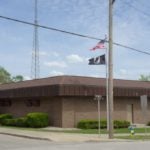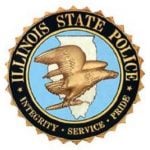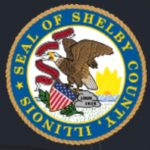ONARGA, IL. (ECWd) –
The Onarga Community Library District, apparently on advise of their attorney, George P. Cuonzo, has been destroying public records in violation of the Freedom of Information Act (“FOIA”) and Local Records Act (“LRA”).
Last month, I requested copies of certain public meeting recordings from the Library.
Their response was:
“We do not have the information that you are requesting. Our Board Secretary does tape the meeting and disposes the tape each month once she reviews it and types the minutes.”
I responded asking for any records destruction certificates granted by the Downstate or Local records Commission which authorizes the Library to destroy its meeting recordings.
The Library responded by stating:
“As stated before we do not retain the tape from the board meetings, they are disposed of after the Secretary types the minutes from each meeting. Therefore there is no such records destruction certificate.” Library Director Vicky L. Reetz.
This presents two problems, first is the FOIA violation, and second is the Local Records Act violation.
FOIA defines public records to include recordings of public meetings, and the LRA requires any destruction of public records to have a Certificate issued by the Local Records Commission, Section 7 (50 ILCS 205/7). Section 4(a) of the LRA places the penalty of a Class 4 felony for the unauthorized destruction of public records.
I responded for a second time, this time with a demand to cease the destruction of these public records, and with links to the various statutes explaining how to obtain permission for their destruction.
Library Attorney Cuonzo responded by telling me that Open Meetings Act does not require recording of open meetings, therefore any recordings made in this instance are purely for purposes of transcription and do not constitute “records: for the purpose of the statute (FOIA) that I cited. He also said he would advise the Library to keep the recordings in order to appease Mrs. Hubner.
I responded to the attorney that this has nothing to do with Mrs. Hubner, it has to do with compliance with the law. I also included Public Access (Binding) Opinion 17-012 which states that recordings of open public meetings are subject to FOIA.
Cuonzo responded by stating that he will advise the board to keep the recording “if” recordings are made.
It appears this issue if fixed, now if only they start properly posting their meeting agendas things would start looking better.
More articles on this library are forthcoming, where we will discuss elected board members, board members appointed to vacancies of elected positions, and how this library board violated numerous laws in removing one of its members.
.
Our work is funded entirely thru donations and we
ask that you consider donating at the below link.








3 Comments
jannie
Posted at 10:15h, 20 MayIf the lawyer, in fact, advised them it was ok to do this, they really are not knowledgeable to be their attorney & there should be a better attorney hired.
Rick Parry
Posted at 09:03h, 21 MayOops!
Bob Judd
Posted at 00:35h, 23 MayI find this article interesting.. May I Post it on our Citizens Microphone Group?
Seems like the same scenario I went through with the Chatham Village Clerk after Darlene Judd FOIA’d the meeting tapes. The Clerk asked the Sec. of State for permission to destroy them, and failed to mention that he had already received her FOIA.. I talked to the person at the SOS Office and told them we had FOIA’d the tapes and they put a halt to him destroying them until our FOIA was satisfied.. Somewhere in my files, I have the name, Administrative title, and ph. number at the Sec. of State..
If I remember the law correctly, the Clerk does not have to tape the open meeting, but [IF] they do, they cannot legally destroy them without permission from the SOS.